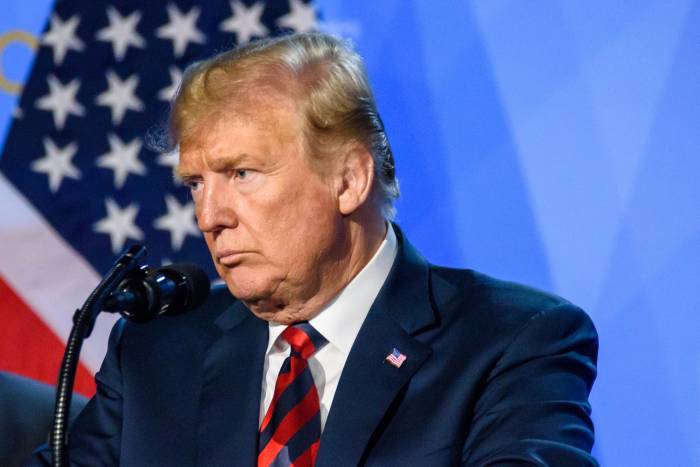EU Wine Exports Worth $6 Billion at Risk as Tariff Talks With Trump Administration Reach Critical Stage
European officials seek relief for wine, spirits, and pasta amid fears of devastating tariffs on small producers and exporters
2025-11-24

European Union officials are making a direct appeal to the Trump administration to spare key European products, including wine and spirits, from new U.S. tariffs. The request comes as transatlantic trade negotiations enter a critical phase, with EU trade ministers meeting today in Brussels with U.S. Commerce Secretary Howard Lutnick and Trade Representative Jamieson Greer. The EU’s plea is detailed in a 27-page document finalized last Friday and seen by several news outlets.
The list of goods the EU wants exempted from tariffs includes not only wine and spirits but also pasta, cheese, olive oil, sunglasses, diamonds, tools, metal pipes, ship engine parts, industrial equipment, fabrics, shoes, hats, ceramics and industrial robots. These sectors were left out of the trade agreement reached in July at President Trump’s Turnberry resort in Scotland with European Commission President Ursula von der Leyen. That deal removed tariffs on aircraft and generic drugs but imposed a 15 percent tariff on most other European exports. In exchange, the EU agreed to eliminate its own tariffs on U.S. industrial goods.
The timing of the EU’s request is significant. President Trump has recently shifted his approach to tariffs after Republican losses in off-year elections that analysts attribute partly to voter frustration over rising prices. Last week, the administration lifted reciprocal tariffs on more than 200 goods worldwide, including fertilizer ingredients, bananas, pineapples, coffee and spices such as cocoa and cinnamon. On Thursday, Trump also removed tariffs on a range of Brazilian agricultural products—including beef and coffee—reversing measures he had imposed during a dispute with Brazil’s President Luiz Inácio Lula da Silva.
European wine producers are especially concerned about being left out of any new tariff relief. The United States is a major market for EU wines, with annual shipments valued at nearly $6 billion. The sector is made up largely of small producers and cooperatives across rural Europe. Industry leaders fear that if wine remains subject to high U.S. tariffs—potentially as much as 50 percent as previously threatened by Trump—the impact could be devastating for thousands of businesses.
Marzia Varvaglione, president of the European wine producers group CEEV, voiced these concerns earlier this year when it appeared that wine might be excluded from any preferential treatment in ongoing trade talks. She warned that leaving wine outside the deal would put undue pressure on an already vulnerable sector.
Spirits producers face similar uncertainty. Recent reports suggest that the EU may be close to securing baseline tariffs of 10 percent for some products such as aircraft parts and alcoholic beverages. However, it remains unclear whether wine will be included in this arrangement. EU officials continue to push for a “zero-for-zero” approach on alcohol trade—meaning no tariffs on either side—but negotiations are ongoing.
The Trump administration is also under pressure from American wine growers who argue that they are struggling due to weak consumer demand at home. At the same time, U.S. distillers—especially those in Kentucky and Tennessee—could face retaliatory EU tariffs if Washington moves forward with new duties on European spirits.
The EU’s request for tariff relief extends beyond food and drink. Italian pasta makers are particularly anxious after the Trump administration threatened to impose anti-dumping duties of up to 92 percent starting in January—on top of existing 15 percent tariffs—a level that would effectively block exports to the U.S.
Today’s meeting in Brussels marks a pivotal moment for both sides as they try to resolve these disputes before further economic damage occurs. The outcome will affect not only major corporations but also thousands of small businesses across Europe and the United States that depend on open trade for their survival.
Founded in 2007, Vinetur® is a registered trademark of VGSC S.L. with a long history in the wine industry.
VGSC, S.L. with VAT number B70255591 is a spanish company legally registered in the Commercial Register of the city of Santiago de Compostela, with registration number: Bulletin 181, Reference 356049 in Volume 13, Page 107, Section 6, Sheet 45028, Entry 2.
Email: [email protected]
Headquarters and offices located in Vilagarcia de Arousa, Spain.